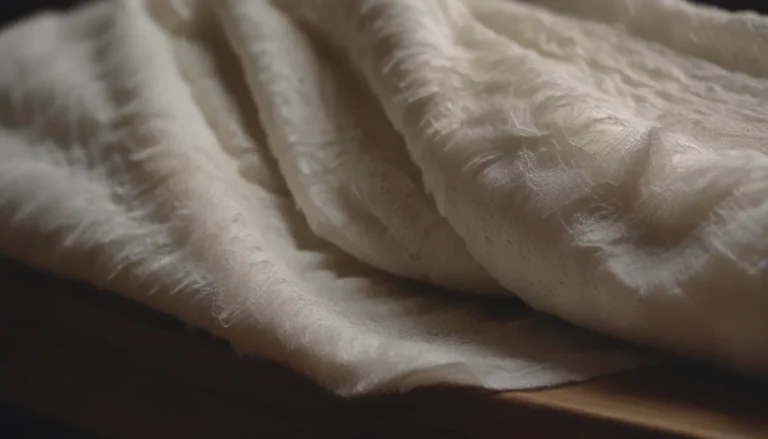The Ultimate Guide to Caring for Your New Clothes

Are you excited about wearing your brand new clothes but hesitant to wash them for fear of ruining their pristine look? Fear not! Washing new clothes is not only essential for maintaining their quality but also for your health. In this comprehensive guide, we will walk you through the importance of washing new clothes, why it’s necessary, how to do it properly, and even share some tips on reducing exposure to chemicals in your clothing. So, sit back, relax, and let’s dive into the world of caring for your new wardrobe.
Why You Should Wash New Clothes
Most of us are guilty of wanting to wear our new clothes right away without considering the potential risks. However, there are three compelling reasons why washing new clothes before wearing them is crucial:
1. New Clothes may Transfer Dye to Your Skin
One of the primary reasons to wash new clothes is to remove excess dye that can transfer to your skin or other garments. Fabrics made from synthetic fibers like polyester and acrylic are often colored with azo-aniline dyes, which can cause skin reactions, especially for those with allergies. Washing new clothes helps eliminate this risk and ensures your skin stays healthy and irritation-free.
2. New Clothes can Contain Bacteria, Fungus, and Insects
Believe it or not, new clothes straight from the store can harbor unwanted guests like bacteria, fungus, and even insects. When trying on clothes in dressing rooms, you may unknowingly pick up these unwelcome hitchhikers. Washing new clothes helps eliminate these potential health hazards and keeps you safe from any unwanted surprises.
3. New Clothes can Contain Chemical Irritants
Manufacturers often use chemical finishes like Urea-formaldehyde to enhance the texture and appearance of clothes. While these finishes may not affect everyone, individuals with sensitive skin can develop rashes and irritation, especially in areas of constant contact like armpits and collars. Washing new clothes helps remove these chemical irritants and ensures your skin stays happy and healthy.
How to Wash New Clothes
Now that you understand the importance of washing new clothes, let’s explore some practical tips on how to do it effectively:
1. Read the Label
The care tag on your new clothes is your best friend when it comes to washing instructions. Pay attention to the recommended water temperature, wash or dry cycle, and any specific care instructions. Following these guidelines will help you maintain the quality of your garments and ensure they last longer.
2. Wash New Clothes Separately
To prevent color transfer and ensure the longevity of your new clothes, it’s essential to wash them separately, especially during the first few cycles. Some garments come with a tag that advises washing separately or with like colors to avoid bleeding. By following this advice, you can prevent unwanted color mishaps and keep your clothes looking fresh and vibrant.
3. Protect Your Baby’s Skin
If you’re washing new clothes for your little ones, it’s even more critical to choose a gentle detergent that is fragrance-free and dye-free. Babies have sensitive skin, and harsh chemicals or dyes can cause skin reactions. Opt for a detergent specifically designed for sensitive skin to ensure your little one stays comfortable and happy in their new clothes.
Should You Wash Used or Secondhand Clothing?
When it comes to clothing from consignment or thrift stores, washing or dry-cleaning before wearing is a must. Even if the clothes have been cleaned before being put up for sale, giving them a thorough wash in your detergent will ensure hygiene and prevent any potential skin irritation. Additionally, if someone in your household is sensitive to fragrances, washing secondhand clothes will help remove any lingering scents and keep them fresh and clean.
Should You Wash New Bed Linens and Towels
Bed linens and bath towels are in direct contact with your skin, making it essential to wash them before use. Removing any chemicals or coatings applied during manufacturing will not only improve the fabric’s absorbency but also ensure your skin stays healthy and irritation-free. Follow the care instructions on the labels and wash bed linens and towels regularly to maintain their quality and comfort.
How to Reduce Exposure to Chemicals on Clothing
If you’re looking to minimize your exposure to chemicals in clothing, consider the following tips:
- Shop for organically produced natural fiber clothing: Look for clothing made from organic cotton, linen, or wool to reduce exposure to chemicals used in manufacturing.
- Read the care labels: Not all natural fiber clothing is chemical-free, so be sure to read the care labels to understand how to best care for your garments.
- Choose washable clothing: Opt for clothing that can be washed at home to avoid chemicals used in the dry-cleaning process and ensure your clothes stay safe for your skin.
By following these tips, you can make informed choices when it comes to caring for your clothing and reduce your exposure to potentially harmful chemicals.
In conclusion, washing new clothes is not just about maintaining their appearance but also about protecting your skin and overall health. By following the simple tips and guidelines outlined in this guide, you can ensure that your new wardrobe stays fresh, clean, and safe for you and your loved ones. So, the next time you buy a new outfit, remember to give it a good wash before stepping out in style!
Remember, a little extra care goes a long way when it comes to caring for your clothes. Happy washing!





